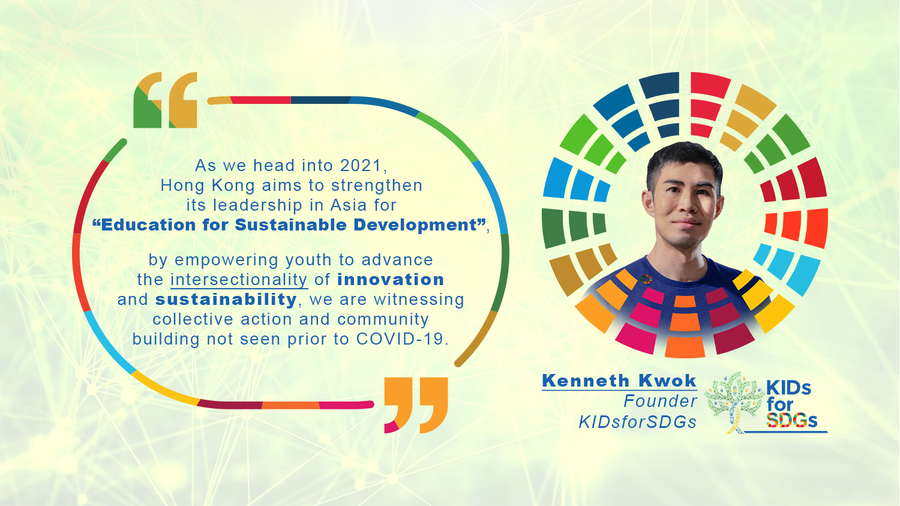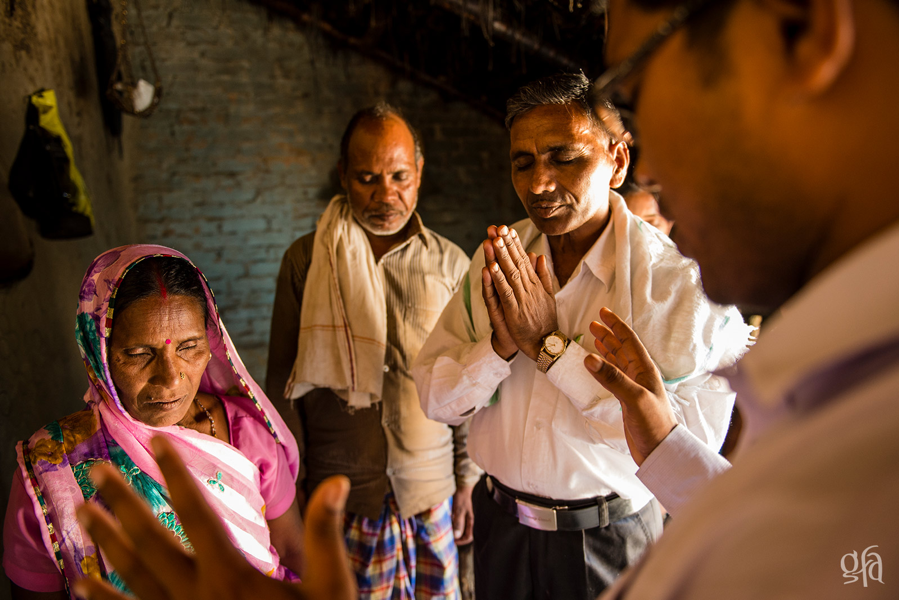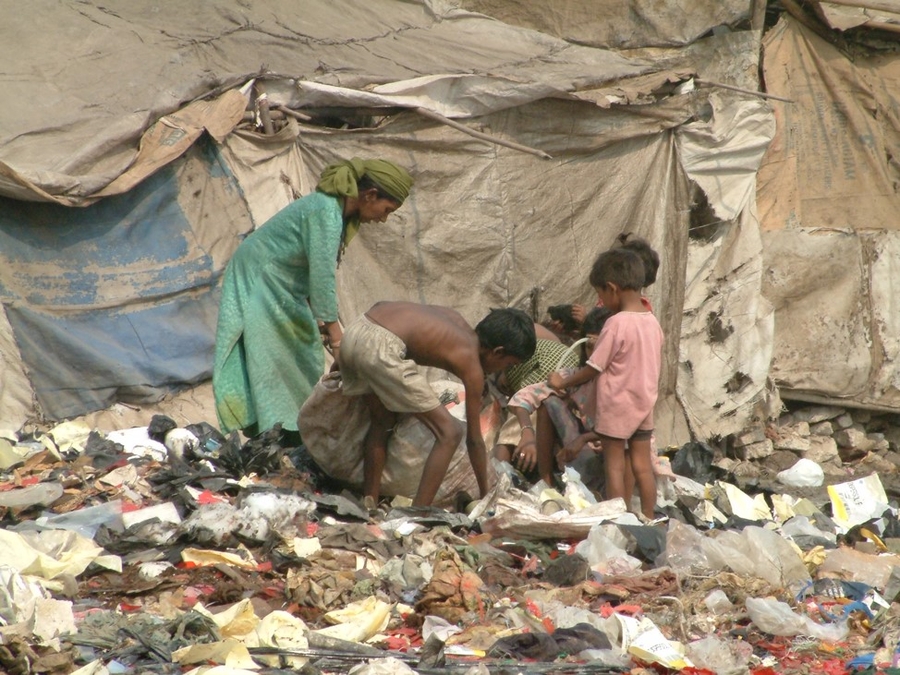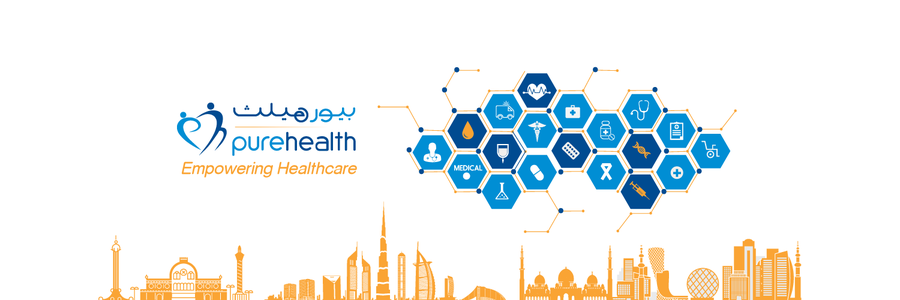“We need to support youth adopt Circular Economy 4.0, where the products of today provide for the resources of tomorrow at the prices of yesterday, to ensure even the most marginalised communities participate in our collective growth!” Kenneth Kwok
HONG KONG, December 30, 2020 /Neptune100/ — As we head into 2021, we are solemnly reminded that progress in advancing the United Nations Sustainable Development Goals (“SDGs”), or the Global Goals, has been set back many years due to COVID-19. Now, the question is: As we reset and rebuild, how can KIDsforSDGs and its community innovate and employ action-oriented pedagogy to reclaim this lost progress and to transform society into a more sustainable one?
For any person, the SDGs and its 17 goals, 169 targets and 231 indicators can seem overwhelming. However, the 2030 Agenda was specifically designed to show the complexity of sustainable development and the interconnectedness of economics, social issues and the environment. The SDGs are inter-related and complex, and the best method to tackle them head-on is to develop approaches through the intersectionality of impact, innovation and inclusion.
Take the example of SDG 9: Industry, Innovation and Infrastructure. Industry is the production of goods or related services within an economy. Innovation is a new idea, device or method. Infrastructure refers to the fundamental facilities and systems serving a country, city or area, including the services and facilities necessary for its economy to function. There are about 2.6 billion people in the developing world are facing difficulties in accessing electricity full time. 2.5 billion people worldwide lack access to basic sanitation and almost 800 million people lack access to water, a huge part of them in sub-Saharan Africa and South Asia. Furthermore, 1.0 to 1.5 billion people do not have access to reliable phone services. These are all issues the World Humanitarian Forum, on which Kenneth sits as a Youth Council board member, seeks to address.
One such approach championed by Global Citizen Capital is to bring forth sustainability through innovation, in particular, by advancing the circular economy through artificial intelligence (“AI”).
What is Circular Economy?
A circular economy is based on the principles of designing out waste and pollution, keeping products and materials in use, and regenerating natural systems.
Shifting the system involves everyone and everything: businesses, governments, and individuals; our cities, our products, and our jobs. By designing out waste and pollution, keeping products and materials in use, and regenerating natural systems we can reinvent everything.
The way we design new products and services has scaled in ambition to include our entire economic system. New tools such as artificial intelligence can ensure that the only limitations we experience are those of our imaginations and the world’s finite resources.
What is Artificial Intelligence?
Simply put, it is the science of making inanimate objects smart. AI is an overarching term for a collection of technologies. It deals with computer models and systems that perform human-like cognitive functions such as reasoning and learning. AI software is capable of learning from experience, differentiating it from more conventional software which is pre-programmed and deterministic in nature.
According to this initiative of the World Economic Forum, we as a society need to identify the benefits of AI for our companies and how to operationalise them in a responsible way. AI doesn’t necessarily mean giving intelligence or consciousness to machines in the same way that a person is intelligent and conscious. It simply means the machine is able to solve a particular problem or class of problems.
Solving problems through performing tasks which involve skills such as pattern recognition, prediction, optimisation, and recommendation generation, based on data from videos, images, audio, numerics, text and more, AI can make financial and human capital more efficient in deployment.
How can Circular Economy and AI Work Together to Advance the SDGs?
Creating regenerative systems by introducing AI to design, business models, and infrastructure is one approach.
AI can be a hugely powerful tool. Imagine if it was being used to accelerate the transition to a circular economy and create new opportunities for large scale positive change. We need to explore how employing AI in our design, business models, and infrastructure could increase our ability to create new, regenerative systems based on the principles of circularity.
As a Social Justice Innovator of the World Economic Forum UpLink Community, it is important that any progress in impact and sustainability need to also work towards reducing systemic inequalities and advancing social cohesion, diversity and inclusion.
Case Studies of KIDsforSDGs for Youth-Led Innovation
The global community has now widely accepted that an integrated and innovative approach is needed to implement the SDGs. The concept has proven more difficult to achieve in practice, however. We frequently hear terms like “silo breaking,” “policy coherence,” “indivisibility,” “nexus thinking” and “whole of government approaches.” How do you turn the theory of integration into action?
Some innovative systems are already open-sourced and just need to be used more extensively in a circular context, particularly for circular business models. This could facilitate everything, from predictive analytics (such as setting the optimal service and repair schedule for durable equipment), to dynamic pricing and matching for the effective functioning of digital marketplaces for second-hand goods and by-product material streams.
Here are three examples of Hong Kong and Greater Bay Area Young Global Citizens and their initiatives (all under development), supported by KIDsforSDGs:
Based in Hong Kong, an initiative named Alloyful is currently conducting research on the rapid and systematic development and production of novel alloy combinations. Alloys which are designed with circular economy principles in mind: (i) are non-toxic, (ii) are designed to be used and reused, (iii) have longer use periods, and (iv) could be made using additive methods that minimise waste. Using AI to accelerate the material design process can lead to the development of alloys that can circulate at high value in the economy and that support product and technology innovation.
Based in Shenzhen, a project named Circulate 4.0 offers consumers the chance to buy back their used clothing and apparel, in exchange for vouchers which can be spent at the original apparel retailer. As part of this process, the project collects the products and re-sells them through existing secondary markets regionally, boosting re-use of apparel by giving it a second life. The service offers consumers a low hassle solution for unused items with a financial incentive. Potential to provide an additional revenue stream as well as an improvement in consumer loyalty and intentional philanthropy through these innovations is their focus.
Based in Hong Kong, a youth start-up named FoodieGoodie is provides a wide range of ways to increase resource productivity in sorting and collecting processes in the food industry. As a Young Changemaker Incubator (“YCI”) cohort member, the company provides advanced sorting, steaming, and peeling equipment and can provide insights into the ripening processes of food. optimises the resource use needed to produce food while attaining the required product quality and ensuring food safety. The potential to reduce food waste in food processing stages, help valorise produce which may not be suitable for direct sale to consumers and increase food bank surplus for marginalised communities is its contribution to the circular economy.
There has never been a more exciting time to be an innovator. KIDsforSDGs believe that, by jumpstarting action, the process can help us to learn more about the kinds of models, supports and resources required to build real partnerships between diverse actors. Through the intersectionality of impact, innovation and inclusion, let us focus on our communities and support them in delivering the SDGs.
About Global Citizen Capital
Global Citizen Capital is a multi-family office impact venture based out of Hong Kong focused on the intersectionality of impact, innovation and inclusion through the industries of healthcare, technology and education. For-profit companies within the GCC ecosystem include the MXA Group, Ntuple, KIDsforSDGs, Family Mask and ITS Education, and non-profit ventures include Better Together Foundation, Asia World Anti-Aging and Well-Being Association (“AWAWA”), ActPact, FamilyQ, Equality 4.0 and more.


![[Pangyo, the Silicon Valley in Asia] Rootee Health Protects ‘Eyes’ with Eye Disease Test Solution](https://www.24-7pressrelease.com/attachments/047/press_release_distribution_0475967_156494.jpg)


